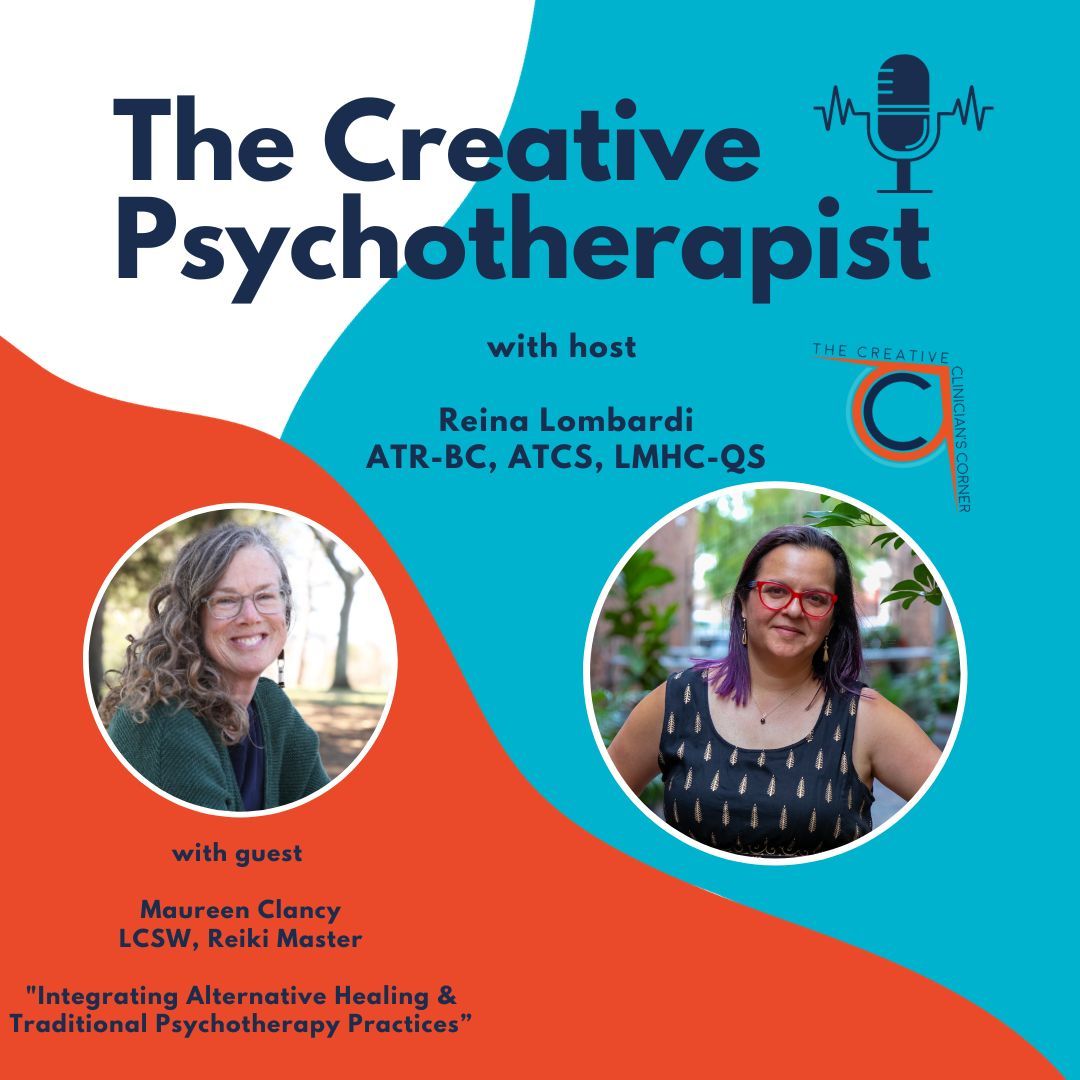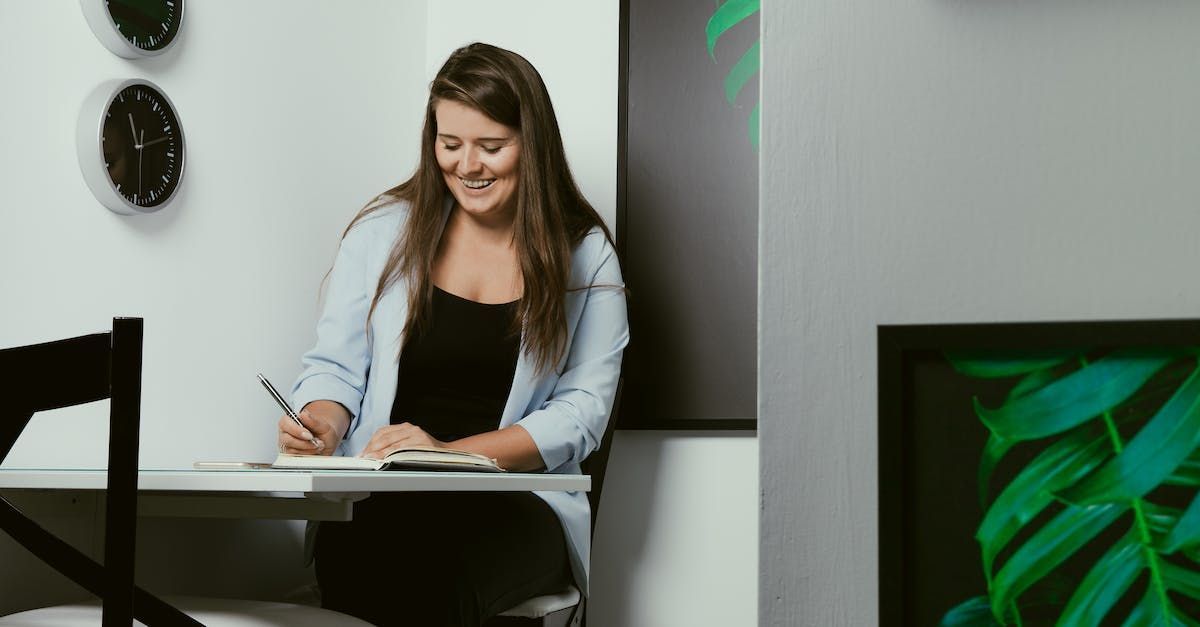Season 2 Episode 23 | Maureen Clancy | Integrating Alternative Healing & Traditional Psychotherapy Practices
FEATURED GUESTS:
Maureen Clancy is a licensed therapist and trauma expert for over 20 years helping women go through enormous life changes who’ve also experienced childhood trauma. She’s the creator of the Gate Passages Framework, a structured, bottom-up approach to healing trauma and going through major life changes. She’s certified in EMDR and trained in Sensorimotor Psychotherapy (certification in progress), Internal Family Systems, and AEDP. She combines therapy with Reiki, Tarot, and flower essences. She’s a certified NASW clinical supervisor for social workers seeking advanced clinical certification and runs supervision groups for newer therapists looking to gain skills in treating trauma. She’s presented on trauma and self-care at Rutgers University Graduate School of Social Work and Limerick Institute of Technology School of Social Care (County Clare, Ireland). She’s a certified yoga teacher (200-hour), 20-year meditator, self-taught artist and potter. She is based in the NY metro area. She loves to garden, play pickleball, and feed people.
LISTEN & LEARN:
- Learn more about two alternative healing methods: Bauch Flower Remedies and Rekki
- Develop a better understanding of the origins of Rekki
- How you can use Rekki to self regulate
- How these methods can support clients in their healing.
RESOURCES MENTIONED ON THE SHOW:
- Connect and learn more about Maureen Clancy at maureen-clancy.com
- email Maureen Clancy at media@maureen-clancy.com
- Check out Maureen Clancy's FREE Trauma Class Why You Can't DIY Healing from Trauma Class: Ready to finally get to the root of healing from trauma? Inside the class, you’ll learn: How your automatic survival responses keep you from thinking clearly while you’re experiencing trauma. Why these automatic survival responses get stuck in your body and keep showing up … even years later. Why regular talk therapy can’t help with this. How DIY and doing it yourself will only get you so far.
- Check out more about Bauch Flower Remedies here
- Imagine 2024 being THE YEAR YOU Build the Creative Arts Practice of Your Dreams!
Receive all the information and support you need to confidently grow on your journey to becoming the owner of a successful therapist owned business.
-Sign up for the 2024 Mastermind Group with Reina Lombardi here
Hey there creative, thanks so much for listening to the show. This is episode 23 of season 2.
We're getting ready to wrap up here shortly in December. So come back in 2024 with a whole new
style. We're going to be doing live recordings in 2024. So it'll still air on Wednesdays, but it'll
probably won't be live until Wednesday afternoon. Anyway, today's episode is with Maureen Clancy, who
really is an integrative psychotherapist. She's skilled in a variety of specialties, but
is integrating some alternative healing practices into her work as a therapist as well.
And we have a long conversation about that. And some of the challenges pertaining to judgment when you're
offering things that maybe other people don't recognize or see value in. And you know, how to
handle that? How do you respond to that? Which I think can be difficult, right? Whenever we're
putting ourselves out there in the world, it's a vulnerable position. And sometimes the feedback
that we receive isn't the nicest. And so when that happens, how do you respond? Especially when
you know that you're grounded in your truth and what you believe is of value to your clients.
So without further ado, I hope you enjoy.
Thanks so much for listening to the Creative Psychotherapist podcast. I'm your host,
Reina Lombardi. And I'm really excited to welcome my next guest to the show. Her name is
Maureen Clancy. And she's a licensed therapist and trauma expert for over 20 years, helping women go
through enormous life changes, who've also experienced childhood trauma. And she's the creator of the
Gate Passages Framework, a structured bottom-up approach to healing trauma and going through major
life changes. She's certified in EMDR and trained in sensory motor psychotherapy with a certification
in progress, internal family systems, and AEDP.
She combines therapy with Rekki, Tarot, and Flower Essences, and she's a certified NASW clinical supervisor for social workers seeking advanced clinical certification, and runs supervision groups for newer therapists looking
to gain skills in treating trauma. She's presented on trauma in self-care at Rutgers University
Graduate School of Social Work and Limorck Institute of Technology School of Social Care,
which is in County Claire, Ireland. She's a certified yoga teacher, 200 hours, a 20-year
meditator, a self-taught artist and potter, and she's based in the New York City metro area,
and she loves to garden, play pickleball, and feed people. Welcome, Maureen.
Thanks so much for joining me today. I'm really excited to be here with you. So, like I said, let's just dive in,
you know, in most of our graduate training programs, the emphasis even 20 years ago, I graduated,
almost 20 years ago, even then it was very focused on, you know, integrating evidence-based
practices, learning about more traditional models. How did you come exposed to
alternative healing practices in your work as a therapist?
Oh, I love talking about this. It happened during a time when I was trying to recover from a
workplace injury in my first career, which was a newspaper reporter. Oh, wow. Very cool. Yeah,
it was a lot of fun. And like most things that happened to me, it wasn't really what I was supposed
to be doing. I loved hearing people's stories and following up on the stories and the things that
they were experiencing. I didn't really enjoy just getting in and out with a quick story.
So, I developed this repetitive strain injury, which made it so I couldn't use my hands
anymore. And I was in chronic pain. Oh, my gosh. From typing?
From typing? Yeah, we were all in a big newsroom and we had all kinds of stations, computer stations,
and you just hop on one or hop on the next, whatever was open. And they weren't configured to
anyone's bodies. And we were all under deadline pressure. So there's the tension in your body
combined with trying to get that story into the queue on deadline. And it really created a lot of
inflammation and pain in my body. Wow. Yeah. So I had to stop working and I moved back in with my
parents in my early 30s. And I became really depressed about not being able to use my body any
more the way I was used to. For a time when it really hurt to even like hold a toothbrush.
Yeah. It was so significant. Especially like at 30, you know, that's such a young age to
experience something like that, where your body's not performing the way it should, in the way we
expect it to. Oh, yeah. I really thought, I don't know what I'm going to do for the rest of my life.
And so, you know, moving in with my parents was wonderful because it gave me a place to land
so that I had a roof over my head and food and the things that I needed to really heal.
And, you know, it was really depressing for a while as I tried to navigate how to heal and what
might be next for me. And so I went to therapy for the first time. And that was great. I loved it.
But I also found that it wasn't enough. So I mean, you know, I was doing physical therapy and trying
to heal what was happening in my body. And those two things weren't quite enough. So my mom's a nurse
and she said, you know, there's someone in town who does this thing called Rekki. I don't really know
what that is. I'm not quite sure, but you might try it. And so I thought, okay, I'm willing to try
anything right now. And after a session, I felt so much more at home in my body.
And I thought, this is really interesting. So I kept going. At the same time, I was experiencing a lot of anxiety
and panic to accompany that deep depression. And it was really about seeing all of my peers getting
married, starting to have families. And I wasn't really in a position to do any of that.
So I went to a health food store near me. And I talked to the owner about what was happening. And she
said, maybe she should try some box rescue remedy. And I thought, what the heck is that? So she brought
me over to where she headed on her shelf. And she showed me that little yellow box with the bottle
inside. And she said, it's mostly, you know, flower essences. But people love it. Give it a try.
So I bought it. And in my car, I took it out of box. And I thought, how can this possibly help?
But I tried it. I put it on my tongue. And right away, I felt this opening in my body. It felt like
there was suddenly more space to breathe. And I wasn't as
death grip on the wheel anxious. And it lasted for a couple of hours. And I was really surprised. So
those two things are things that I started incorporating on a regular basis into my own healing.
And it was really helpful for folks that are listening that maybe have heard of Rekki, but don't know
what it is. Would you be willing to kind of talk about the origins of Rekki and what it is and how
people give and receive Rekki? Yeah, I'd be happy to. And by no means an expert on Rekki.
But what I was taught is that it was discovered spontaneously by someone in Japan.
And he, I don't remember his name, but he was putting his hands on a family member and felt this
energy going through his hands. And that was the beginning of trying to figure out what was
happening. And the family member really enjoyed what was happening and felt better.
So he developed a whole system of channeling that energy. And he said it's just energy that's out there in the
universe available to everyone. So Rekki is a form of using that energy and directing it into
it could be a person, it could be a plant, it could be a place, it could be my microphone
as a form of healing. So that's what I can tell you about the origins of Rekki.
And as a recipient, what what what what would somebody who's never done Rekki before?
What could they expect if they go and say, okay, I'm going to do this. What does that look like?
So if you get Rekki in person, then you'll be laying fully clothed on a massage table. That's the
most common form or you can be seated. And the person who is doing the Rekki will have some kind of
centering that will happen. And then they'll be laying on of hands on the person's body. But it's not
like a heavy-handed gripping. It's more like my Rekki teacher, the first one I had said, it's like a
butterfly settling on your body. And so you just receive it usually feels warm at the place where the
person is putting hands on the body. There could be nothing that you feel. But the idea is that you are
you're receiving this energy that exists everywhere to heal whatever needs to be healed in your body.
So after Rekki session, people usually feel more at ease, calmer, more energized.
If they're experiencing chronic pain somewhere, there's usually an ease in the intensity of the pain.
And sometimes the you know how the pain is spreading in the body sometimes changes. So it's a really
gentle form of healing. And you can have Rekki that's done in person or you can do it be a distance.
And if it's be a distance, how does that work? Yeah, well it works kind of like
I mean Rekki to me is not a religious thing but it works kind of like prayer or sending you know
healing thoughts to someone.
So you have the intention of sending that Rekki healing energy to a particular
person or a group of people or a place. And then they can pick that up whenever they want. Or it
doesn't even have to be picked up, they can just be received. Fascinating. Yeah, there's not a lot of
science behind it, which I think is sometimes hard for people to try it.
For sure. I think anytime you talk about these kinds of methods, people feel
if they don't they don't understand it, they haven't experienced it, they can feel like
that is a little bit out there. And not you know they might have some judgment around it.
I know in my practice a couple of years ago one of my administrative assistant was a Rekki master.
And she was like you know would you be open to me teaching people how to use it. And I was like yeah
I want to I want to learn too. And well we started to promote it. And I got a lot of negative feedback
in terms of like emails responding to me marketing this because you know it's not grounded in science.
It's made up. It's like all kinds of things. And and I was tough. It's really tough to be on the
receiving end of that. And I thought okay well I've already been experiencing it in my practice.
And I've seen how like she was able to do things. I once had an intake where there was a young child
who was inconsolable and inconsolable at a level that was painful to be in the presence of. And it
was intense. And she heard it. She was in another room in the building because everybody heard it
even with the sound machines on it. And she was able to offer that energy at a distance. And the
kid fell asleep in his parents arms. And they said that's unusual. Normally this will go on for hours.
Which was of course why they were bringing him in and kind of referred them on to have more
testing because I knew there was something else going on there that really needed to be addressed.
And after she was like, are you okay? Is everything okay? And I was like, yeah, I know.
And she told me what she did. And I was like, oh, well maybe that's why he fell asleep.
And I thought, okay, yeah, I definitely want to learn how to use this. Not simply has something to
be offered to my clients, but more for me, more, how can I use that for me as a clinician when I feel
really dysregulated in context with the work that I'm doing so that the next appointment I can
really be grounded. And so I did level two training, one in two. I haven't done the third level.
But to be able to kind of self-administer the Rekki. And I love it. I found it to be really wonderful. And
I think that the therapist that ended up doing these trainings too have had really positive feedback
about how they've been able to utilize it for themselves. It kind of changes the directionality of
where they're going in the work. And I think if we're dealing with trauma, right, there's like,
it's an existential experience. And it's hard to separate that stuff out even though we kind of want to
in our field in some capacity. But last year during Hurricane Ian, which hit here and was really
devastating as part of the emergency response.
There was a mental health first responders kind of group that went out. And they were calling for volunteers. One of the things that they were looking for were trauma practitioners that also offered Rekki. That not necessarily,
you know, as they were going out to the hard hit community, which was real total devastation.
Not necessarily to facilitate therapy on the spot, but to offer some sense of grounding and comfort.
And to be able to move that, I think that energy in those hard hit areas. And I thought, oh, this is
good. This is positive. Maybe they're starting to be a shift here in people's receptiveness to
the practice. Have you observed any of that where you're at and you're part of the country?
Hey, there are creative psychotherapists. I want to share with you an upcoming opportunity in 2024
to be part of the creative arts practice builders mastermind group.
I've been holding this mastermind group for the past few years. And we usually meet for six months.
And then we have six months off. And it kind of gives people time to integrate what they've learned
into practice and then come back again in the new year. And if this sounds something that you're
interested in, let me know. We have opportunities for you to book a short
zoom session with me to see if it's the right choice for you.
And the group will begin in February 2024. We'll meet three times a month for 60 minutes. One will be, one week will be an educational format where I'm presenting something that is beneficial for your business. Or sometimes it might
be a creative arts experiential that's business focused that we engage in together. And then the other
two weeks are more hot seat style where somebody comes with a problem or a challenge, something
they're working on their business. And they receive support from the rest of the group.
And then on the off week, on that fourth week of the month, I usually will set up a meeting where
folks can attend and kind of work together. I'm not present during that meeting, but other
individuals in the group will come and you can work on whatever it is that you need to address in
your business. But if you feel like this might be a benefit to you, sign up for a 20 minute zoom
call with me on the website. And you can do that over at www.creativeclinicianscorner.com/mastermind-group.
And I look forward to talking with you real soon. Wow, Reina, as I'm listening to everything you just
shared, it really makes me so happy to hear that things might be shifting. Yeah, that's a big deal.
Hope so. Yeah, I haven't experienced that here where I live outside of Manhattan.
But what I find really interesting, I used to keep all of that hidden. And once I started working with
a client, I would say, "You know, I also do Rekki. Is that something that you'd be interested in?"
And this is what it is. And I'd go through the whole informed consent piece.
And some clients were like, "Let me think about it." And other clients were like,
"You do Rekki. This is great because I go somewhere else for that."
And if that's something that you will offer here, that's wonderful. Yes, I would like to do that.
So in that regard, I think it's becoming something that clients in my area are becoming more familiar
with and are seeking out as a junctive healing modalities to the therapy work. And I'm so excited
about that because there is this real energetic piece to trauma or any mental health issue that
you're grappling with that really isn't touched by talk therapy and sometimes those evidence-based
talk therapies. And when you're describing to me this backlash that you received
in offering Rekki to your clients, I think that that is usually the first thing that I hear
if I talk about Rekki with other practitioners, they're like, "Well, how can you combine the two
is that ethical? Are you jeopardizing your license?"
And I've reviewed my license, the code of ethics, everything. There's nothing in there that says you can't do this.
And it really starts with your intention for doing it. And it starts with that informed consent
piece which is really important. Yeah, yeah, yeah, for sure. I feel like that's
part of anything we offer, right? The consent, making sure where there's transparency that we both
are starting from the same place. We have the same understanding. We understand the limitations
of what we're offering, all of that. Yeah. So with your work with Rekki and flower essences,
can we shift a little bit over to that? And I know you were talking about how you were introduced.
How are you using that in your work with clients? Obviously that's more of like a supplemental
kind of thing. I've talked with different people about like, neutropics and different types of
more natural-based supplements to help with managing our symptoms, whether that's anxiety or depression,
what have you. But I'm not familiar with flower essences.
Yeah, flower essences are becoming more and more familiar to people. And I'm also really thrilled
about that. But flower essences are really the flower put in water for a certain period of time
in direct sunlight. And then after that you take all of the plant material and the flower material
out of the water. And you add something to preserve it. It can be alcohol, which is what's used in
box flower essences. It could be vinegar, the kind that I use most often if I'm not using my own,
and the ones that I make. It's preserved in red chiso, which is a plant in the mint family.
Which is a great preservative. It's one that's used very widely in Asia.
So yeah, and the idea is that there's something that everything that flowers can give you
and support you with. So, "Borage as a flower essence"
gives a sense of self-love and hope. And it's really soothing to the heart.
So, if I'm working with a client who is experiencing a lot of grief about what may be lost or what
they're losing, it could be someone going through a divorce or a job loss or a health condition
that's really going to alter how they function in the world. "Borage can be really helpful
in soothing that grief and sorrow." And so, it's thought that everything that flowers has something
that it can help with. Fascinating. Yeah, this is all new to me.
It's fascinating. And I think to a lot of herbal conferences, and one of the things that I had
never done before that I really wanted to experience is meditation and sitting with flowers or plants.
And so, one of the workshops that I went to was really wonderful.
And the person presenting gave flowers to every single person in that workshop and you had to
sit quietly with the flower and remain open to whatever impressions were coming to you.
And what did she give me? She gave me plantain. And I thought plantain, you know, this is something
that I'm yanking out of the cracks in my sidewalk. I wonder what plantain's going to tell me. And for a
while I didn't hear anything. And then I heard I can help in all of the ways that you don't ever really
notice. And I am a survivor and I can help you survive too. And so she asked us what came up and I
raised my hands and I thought, this is weird. This is what I heard. And she said, that's very interesting
because plantain is something for acute injury. You can take some plantain and either mix it together
with water or actually if you don't have water, you can chew it in your mouth.
And if you put it on like a cut or a burn or an insect bite, it will start to heal that a lot more quickly. And the pain
is going to dissipate. Interesting. I was shocked. And that was just, you know, sitting with plantain.
I think it took 10 minutes. So I had already been using flower essences at that point. And I thought,
this is something that I may be able to bring to clients. Yeah. It sounds like it is, it's like
wisdom from generations before we have like commercialization of all of the medical
pills and medications and things that we have today that like there's a lot of ancient wisdom
in the herbal methods and remedies that we probably probably a lot to learn there.
Yeah, there's so much to learn. But with box rescue remedy and it becoming really well known and
popular, it's a whole new way of introducing that wisdom and experiencing that wisdom.
Yeah. And when I first used that box rescue remedy, I mean, the bottle maybe lasted me three days
and I just kept buying more and more. And I noticed that it really helped me feel less anxious
about what was going to happen. What was my life going to be after this injury?
Which clearly that has been some time and brought you into the field of social work.
Yeah. And I'm so grateful. I'm grateful that that injury happened because it brought me somewhere else.
It's much more in line with who I am and where my heart is and what I'm interested in.
And not not spent stressing out writing short deadlines for work, although we have a different kind of
writing that we're responsible for. Yeah. Yeah. So how do you, if you do receive like any kind of
criticism or questioning from other colleagues about your methodology and kind of integrating
these alternative practices with your more traditional psychotherapy training?
How do you respond to those kinds of things? If that if that's happened to you, I know I struggled with that myself.
How do I respond to this? I don't even know how. Yeah. It's a journey. And at first,
it was really hard to hear that like, hmm, maybe I really am doing something wrong here.
Maybe I should keep that stop hidden and separate. But then I started to get really curious
about where that criticism was coming from. And what kind of fears might be coming up for those
colleagues who were questioning my use of those things. And might that always use to say something?
Well, who benefits from that? And I really started thinking, okay, who benefits from the separation here?
And it might be governing bodies. It might be, you know, states giving out licenses. I don't really
know. I don't have the answer for that. But when I became curious about those criticisms,
I think the best response that I ended up giving, and usually it's the one that I still have, it's,
you know, the alternative healing modalities aren't for everyone. And if it makes you uncomfortable
to know that I'm doing it, you know, I'm be happy to have a conversation about the anecdotal evidence
that I'm getting from my clients. But if you would rather not talk about it, we can also agree to disagree
on my use of that. So that's how I handle it now. But it makes me curious.
And it always, I think it's always going to make me curious about where that's coming from. Is it the patriarchy? I'm just not sure. That that's a good question. Yeah. Yeah. I think I don't really have the answer either except for
that it's somehow linked with fear. Like you said, I think people fear things they don't know and don't
understand. And yeah, I think your response is eloquent and an assertive, respectful and helpful.
So thank you for for sharing that for folks that might be listening that may also be in that position
too of, gosh, it feels really vulnerable to put this out there.
But I want to because I see how it is a benefit to the clients that I'm working with or perhaps it's been beneficial for themselves in some way. So thank you for sharing that. I'm happy to. I will often get supervisees
who will say I secretly want to bring this into the work, but I'm really scared.
And I'll say, okay, inform consent, transparency, that's really key here.
But try it. See if there's a client who might be willing to try what you'd like to offer.
Because we're not in like, visit, narrowly defined idea of what a therapist does. But clients are
coming to us wanting all of the healing power we have, not just this little place.
So I'm hoping that there's more and more acceptance of widening the scope of what's offered
in a healing relationship for therapists and their clients. I do too. I've noticed that over the
course of my career places that are maybe a little more receptive to it are facilities that are
end of life, hospice work, work with cancer, things of that nature, but not necessarily out in
kind of maybe more traditional places where psychotherapy is offered, which is really unfortunate.
But hopefully, as more people come to these things and they're talking about them and making them
visible and accessible and relatable, that it will come to be.
The fact that they were looking for folks that had that background to do the mental health
response for me was like, wow, I was not expecting that. That's a tremendous sign, which is exciting.
Yeah, that's really exciting. And Ricky is really great for providing that grounding and regulation
in the nervous system, which after something traumatic is so hard to come by on your own.
Yeah, I yes, absolutely. Our whole area was dysregulated for quite some time. I don't think
that we're really back to completely normal yet. There's still so much happening in terms of
recovery efforts, but a lot better than where we were a year ago, which was like right after it
happened. And it was just scary. That sounds awful. It was horrible. I've been through many,
many hurricanes. I'm from Florida and grew up here. So I've been through many storms.
This was definitely the worst I've ever experienced. And it just, it's changed our entire landscape of our
community here. So whenever you have something that's so destructive and catastrophic, there's
so much grief. And even like I know people have said, I know I need to do some therapy because,
you know, I was there and this happened to me, but I just haven't had time yet. I have because
because that seems like, you know, higher up on the Maslow's hierarchy of needs,
than just to kind of get stabilized in some way.
Yeah, there's so many acute needs after something like that happens. And, you know, the understanding that, yeah, I can benefit from therapy, but actually placing yourself in a chair so that you can confront or face what happened to you takes a lot of energy. So much energy. Yes. So much energy, which that's something that's nice that you're able to, you know, be with your clients and offer additional energy to them as they're going through the process.
Yeah, I'm very grateful to be able to do that. I'm curious how your gate passages framework
may integrate some of these things. You talk about it as a bottom-up process versus a top-down
process. And I think, you know, the more we're learning about trauma, the more we're recognizing that
we, that bottom-up is where we need to be focused. The cognitive shifts only help so much.
But would you be willing to share how you're integrating that into your framework?
Yeah, I would be happy to. And it really, you know, starts with the nervous system,
because when you are remembering something traumatic that happened to you, there are specific
body memories that also start to show up in the body. And it could be like an orienting response
or like a defensive response, you know, it can bring your hand up as a pushing away of something
or someone. And so I really, I saw so many clients who had that happening earlier in my career,
and I had no way of doing anything except noticing it.
And it wasn't until someone, it was a colleague who introduced me to sensory motor psychotherapy in 2018 that I really started to go, "Oh, this is the missing piece. This is what I can bring in for clients who had very severe
body memories and things that were happening that really kept them in a survival response."
And so the sensory motor psychotherapy has really changed the way I practice in that
when clients start talking about what happened or if there's a current trigger that goes back to
something that was traumatic that happened, we will start noticing what's happening in the body
and bring in mindfulness to do that.
Rather than talking about, "Okay, well, this happened and then
that happened." It's a, "All right, so when you talk about that first thing that happened,
I notice that your shoulders come forward." And we work with that sense of your shoulders coming forward.
And usually it's a real shift for people who've had therapy before because they want to talk about
their shoulders coming forward and what that means. And the last time they did it and 20 times ago
and how they saw their mom do it, and they want to really bring in that cognitive piece. And so
it's almost really training them to stay with what's happening in the body.
Yeah. As a way of reconciledating those body memories which really don't respond to talk therapy.
No. Yeah. No. They need a different way of being expressed and understood.
Yeah. Yeah. And so yeah. I was going to say so it sounds like with your, with the gate passages framework,
you're integrating a lot of the sensory motor psychotherapy approaches into that.
Yeah, as well as the Rekki which is a body approach, you really don't have to do anything except
receive and the flower essences because interestingly enough flower essences, once you take them they
go right to work on what's needed.
And if you're taking Borge for example and you're like, "I got
plenty of self-love. I don't need that." It just goes through your system and out as quickly as you took it.
So you don't have to think about anything that's happening with it. It works really on the body
and only on the body. And the idea of that is if your body is for example you're not experiencing any
love for yourself and you're taking Borge and you notice an opening here, your posture might
get taller. You might actually feel like you're more solid in your body because there's more space
in your torso now that you're sitting up straighter. So those methods that I'm using are really
designed to work with the body first. Not so much that you have to think about it.
Yeah, so it's kind of like you're getting out of the way or you're kind of working around the
cognitive defenses that might prevent stuff from changing because that's the goal of those
defenses, right? Keep us acting in the same way that we've habituated to. So you're kind of getting
around that, making some shifts within the body which then can be recognized and thought of differently.
I understand. Yeah, that's exactly it, right? Okay, perfect.
And a gate passage is my term for time of enormous change. And the idea of that phrase is
so that there's a structure that you can start to bring in when you're going through a big change.
You'll start at one area of the gate and you're just going to keep passing through until you're
out of the gate on the other side. And so on the other side, exactly.
So I used that phrase very intentionally to really set an expectation that whatever change is happening now, it's something that you're going to get through on the other side of. I love that. I always say, you know, the only
way out is through and you have to feel, feel our way through things and not think our way through
things. Exactly. That's it. Mm-hmm. Yeah. But it's hard to feel our way through things. So
having a, having a framework to do that within and support us as we do that is really helpful.
Yeah. It's a, for me, in a really safe way of working with trauma. And it really follows
a Pierre-Jones three-faced approach to working with trauma and healing from trauma.
So I'm hoping to be building on that work. Mm-hmm. Do you offer training in that approach?
Not yet. It's on my list of things that I would like to do. It's on the list. I have a long list.
There's so many things that I'm interested in and curious about. But I expanded recently from
an individual practice to a group practice. I have two clinicians who work with me now.
They work part-time. And so I am teaching them about this framework. And so hopefully in teaching them about
the framework, it'll really point me in the direction of formalizing this for training and helping
other clinicians learn more about it if they're interested. Yeah. I think that would be really helpful.
For sure. Especially for those of us that are looking to integrate different approaches to meet our clients unique needs. Yeah. There's not enough good trainings out there for that. No. And which is why I'm always
in my heart thinking the art therapists out there because they've really been at the forefront
of incorporating something else into therapy.
Yeah. I think I went to Leslie, which is a multimodal approach. So it integrates all the expressive arts. And one of the classes that I got to take as an elective was holistic approaches to psychotherapy. And the teacher, she taught us all,
we did all kinds of things in there that now I recognize like, oh, we learned about that in that
class, but it's being integrated into a lot of the current approaches to psychotherapy, right?
You pulling in yoga, which so many people are doing that. And there's now trainings to integrate yoga
in therapy for that. And, Ash, what else? She talked a lot about herbal, herbal
tinctures and different things, mindfulness approaches to eating. Just it was definitely not
your traditional program, but wonderful to have that exposure and to know, okay, like there's,
there is an opportunity for this here, which is wonderful. But the other piece is that with the
expressive therapies, it really is body. The body is part of part of that work, especially if you're
taking people in an owl, like, you know, you're creating about something art wise, then you're
expressing it through your movement. What does that look like with your body?
Where do you feel it in your body? And you're processing it in that way. So it's wonderful to see that as a whole, even
the creative arts, the expressive arts are kind of being more widely accepted and recognized
for their value. I know you were saying you're working on the certification for sensory motor
psychotherapy. And there's a training on sensory motor art therapy. I would love to take. I have not
been able to fit that in, but that's been around for a really long time.
And yeah, it's just fascinating. And I've read the book on the topic, but I haven't taken an actual physical training, which I would love to take. I've played myself in that realm, but I think it would be beneficial to take a legitimate
training with somebody who's a master and that's their approach. But it's all about like really
interpreting what's in the body into an art piece, but the art piece isn't a product. It's not a
product to be looked at as something it's an experience that you're going through.
And it's bilateral. So you're using both hands at the same time as you're expressing what's happening. And it's really
fascinating. This sounds fantastic. I can't wait to look this up, Reina. Yeah, yes. Highly recommend,
for sure. Yeah. So for people that would like to learn more about what you do, or perhaps maybe
their social worker that would really like to be in your supervisory group.
To learn from you and to learn how to integrate different approaches to treatment,
whether they're more traditional or more alternative into their practice, where can they
find more information about your Maureen? They can visit my website at Maureen-clancy.com.
And the information is there about how to set up a brief talk to discuss working together
in supervision. Love it. Well, I am grateful for you making the time. And for being willing to talk
about your work and how you're integrating these approaches into treatment and happy to have
this conversation. Because I think that there's real value in it. And I wish people didn't write
it off so quickly. And hope that we have more people coming around.
Yeah. And thank you so much for making space for this conversation. Because I think there are a lot
of clinicians who are curious about how to bring all of that in. So it's wonderful to be in conversation
with you about this. Thank you. You're welcome. Thank you. Thanks so much for listening to this episode of the Creative Psychotherapist podcast. I hope you enjoyed this conversation with Maureen. If you're somebody that has been wanting to integrate the alternative healing modalities into your work, I hope that you found this conversation
inspiring and hopeful that, hey, you know, other people are doing this.
And there's a way to do it that's ethically minded and grounded. As always, if you like what you hear, please rate, review, and subscribe wherever you listen to your podcasts. We very much appreciate your support in helping
us to be found by other folks that might find value in the conversations that we're having on the show.
And I hope that you all have a wonderful creative week. And we'll talk about you next week.
Thanks for listening to this episode of the Creative Psychotherapist. If you like what you heard,
please rate, review, and subscribe wherever you listen to your favorite podcasts. For show notes,
downloads, and additional resources head over to the website at www.CreativeCliniciansCorner.com.











